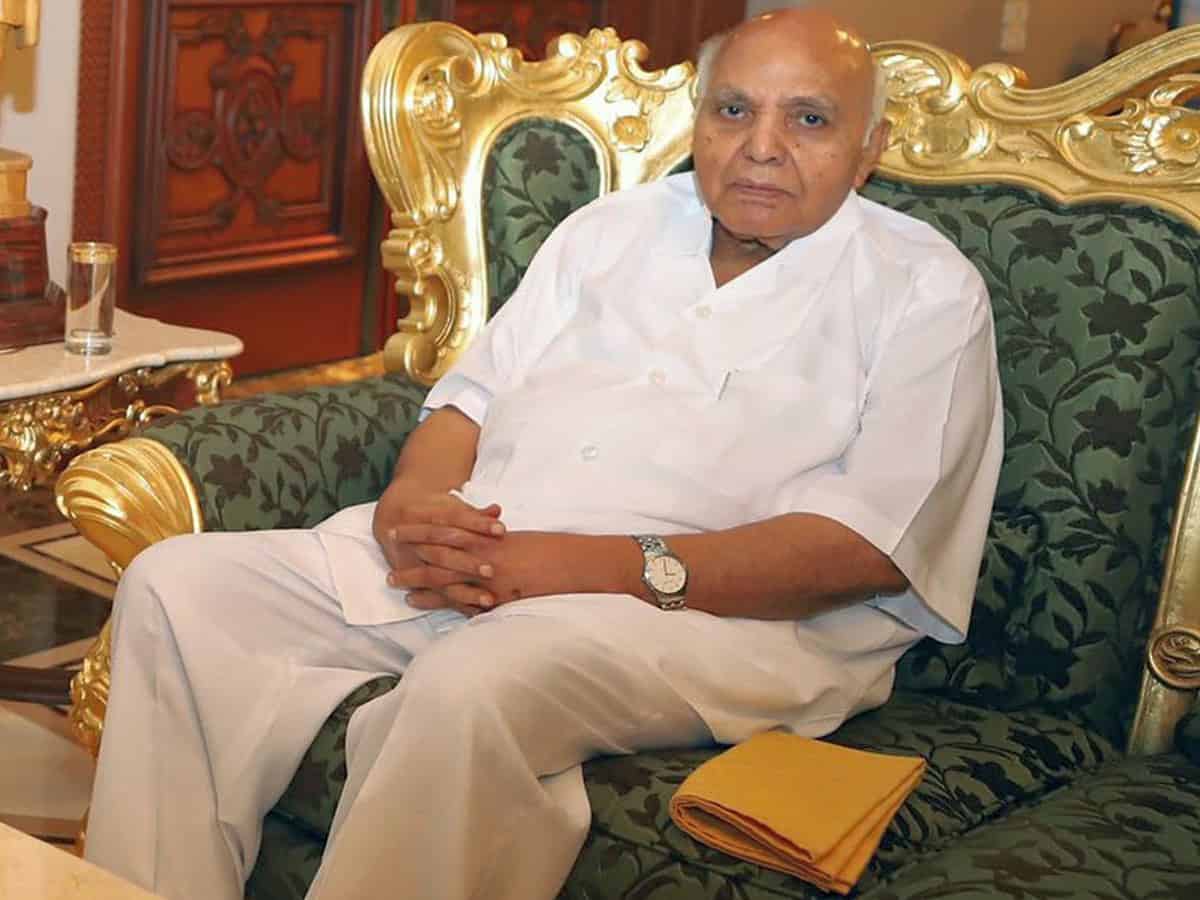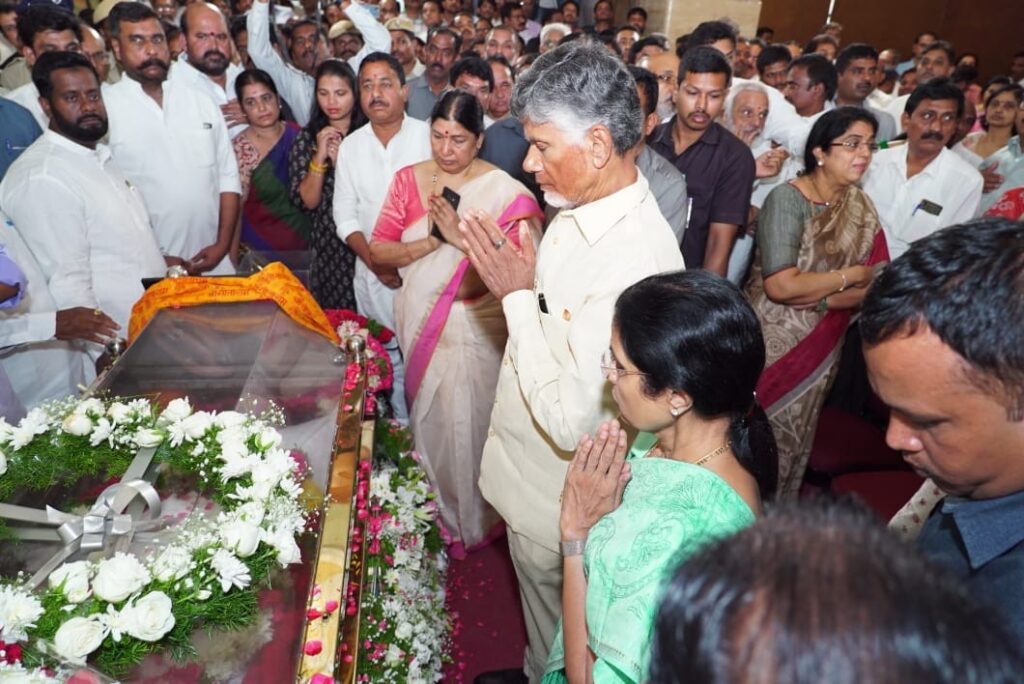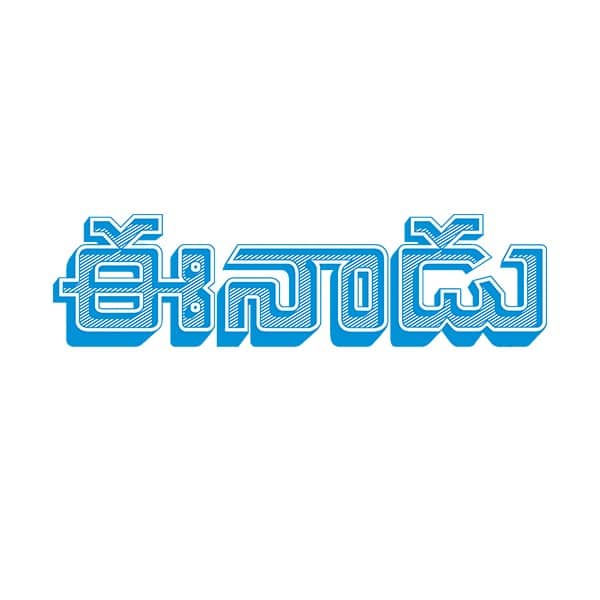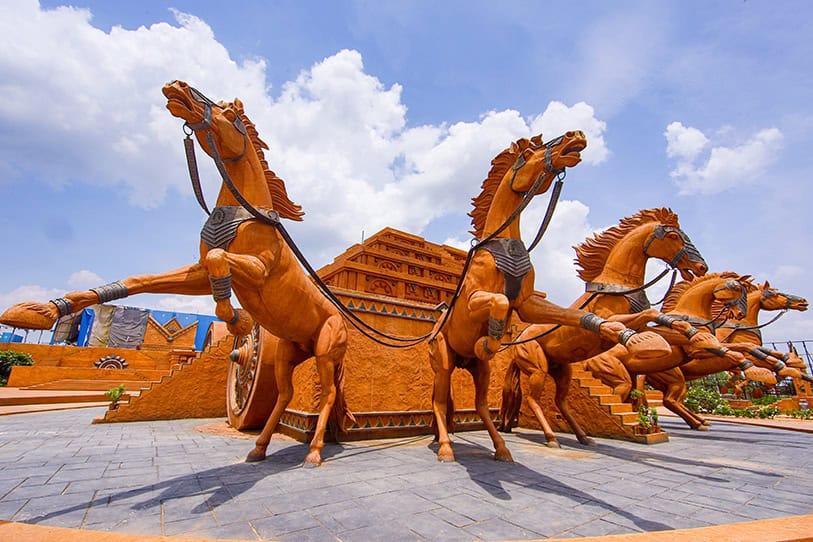
Cherukuri Ramoji Rao, described variously as a Media Mogul, political kingmaker, business tycoon, and a multifaceted personality has surely left an indelible mark on many of the fields he traversed in his 87 years of life which came to an end in the early hours of Saturday, June 8 in Hyderabad.
Ramoji built huge conglomerates in different business sectors he ventured into over the last 60 years of entrepreneurship. In media it’s the Eenadu Group; in business the over Rs 10,000 crore Margadarsi Chit Funds; in entertainment, the world-class Ramoji Film City (RFC) and Usha Kiran Movies; in hospitality, the Dolphin hotel chain, Kalanjali, the handicrafts shop; and in food business, the household Priya Foods with the wide range of pickles and brand Soma, the beverage.
A self-made man, a fighter till the end, and an innovator in businesses, Ramoji breathed his last, days after realising the victory (June 4) of the decisive role he had played in helping N Chandrababu Naidu win the Andhra Pradesh elections (May 3) against Jaganmohan Reddy. In the bitter battle between the two political rivals, Ramoji Rao had pitted the entire might of the Eenadu group in favour of Naidu against the incumbent Chief Minister, Jagan. The rivalry between Jagan and Ramoji, which spilled over from the former’s dad and former CM of AP, Dr Y S Rajasekhara Reddy (2004-09) was an open secret.
Ironically, the media doyen, who stood tall and always wore his trademark, spotless whites, has passed away in the history-making year when the Eenadu completes its 50th year. The newspaper was first launched in Visakhapatnam in 1974 in a small way and a year later from Hyderabad.

Controversies too dogged Ramoji Rao due to his political leanings to the TDP in his long career. The Margadarsi Chit Fund case, which dragged on for years and gave the handle to the YSR government threatened to cripple his empire. Similarly, the hundreds of acres of land under the RFC became a political storm during the separate Telangana State agitation. The shrewd person that he is, Ramoji managed to buy peace with K Chandrasekhar Rao, the first CM in 2014.
Starting as a left sympathiser during his student days in Krishna district, Ramoji got inspired by N T Rama Rao’s resolve to float the TDP in 1982 and threw the resources of his entire Eenadu newspaper behind the campaign. In 1983, NTR stormed to power defeating the Cong (I). Eenadu and Ramoji Rao were acknowledged as being instrumental to a good extent in the dramatic success. In due course, Ramoji Rao became close to L K Advani, Vajpayee and other national leaders too along with NTR and later N Chandrababu Naidu, who relied heavily on his advice on crucial matters.
In the last two decades (since 2004) however, Ramoji Rao has been witnessing a shakeup in his businesses with competition and no clear succession in leadership for all sectors. The loss of one of his sons Suman in 2013 was a jolt. While his other son Kiran manages the Eenadu group, the daughter-in-law, Shailaja Kiran has been doing a creditable job in building up Margadarsi Chit Funds. He had to hive off the entire ETV channels minus Telugu to the Reliance Group of Mukesh Ambani. Similarly, food, hospitality, handicrafts, and RFC are all struggling.
Beginnings of remarkable journey

Ramoji Rao began his inspirational journey at an advertising agency. His first entrepreneurial venture was starting Margadarsi Chit Funds in 1962. After, more than a decade, he entered the media world with the launch of Eenadu in 1974. A year later the Hyderabad edition came. And within a decade, it emerged as the largest circulated Telugu daily beating established players like Andhra Jyoti, Andhra Prabha, Andhra Bhoomi, and Andhra Patrika.
Eenadu is a trailblazer in the language media press not just in Andhra Pradesh but the entire country. Ramoji pioneered many new initiatives from starting of district editions to hyper-local city editions. He established a network of stringers and rural correspondents to ensure exhaustive coverage. On the marketing and circulation side, he used the State Road Transport Corporation reach and entrusted the bus conductors to reach the paper to every nook and corner in the early hours of the morning. Special features on women, science, and technology to many other subjects found a place in the newspaper. Annadatha – the exclusive magazine for Agriculture (over 40 years now) is another pioneering effort.
Not only did Eenadu expand in circulation and influence but due to the commitment and hands-on approach of Ramoji Rao turned into a highly professionally run enterprise. It incorporated the best of practices and a management style not common. He recruited top journalists, writers, and language experts to ensure quality and balance in reportage and opinion. He built a library with rich resources and established a Journalism school to ensure a continuous supply of manpower. Later he diversified into the TV sector with a presence in multiple Indian languages. Towards the last decade as online and social media influence grew he moved into the digital space with ETV Bharat in nearly a dozen languages.
But, Ramoji Rao and Eenadu management did not always endear themselves to the employees. Starting from a flash strike in the late 1970s by journalists to not allowing any Union, Ramoji Rao took decisions that his critics describe as anti-employee. For example, he started Newstoday, an agency to circumvent the implementation of the Wage Board for newspaper employees. Similarly, during COVID-19, he let go of employees on a large scale with little compensation.
Highs, lows and interesting episodes

If building Eenadu into an iconic brand in India’s media world is one of the high points of Ramoji Rao, the flop of Newstime, the English newspaper could be one of his lows. Launched in 1984 with the best of editors and professionals training a large group of young journalists Newstime was among the best-produced (technically and design aspects) newspapers, but it never picked up and had to be closed around 2005. He also started magazines like Sitara, Vipula and Chatura.
Ramoji Rao brought modernity and appeal — in terms of use of colloquial language and presentation, and use of the latest technology.
One of the high points of Eenadu was helping NTR become the King in AP in 1982 and reaching his image to every household. A few years earlier in 1979 the coverage of the fall of the Skylab of NASA stands as an example of sensational journalism and creating panic. The newspaper carried reports that created panic in villages as though it would crash there.
His openly siding NTR was reflected in the editorials of the Eenadu and landed him in trouble in 1984. An article in the newspaper led the Legislative Council to file a breach of privilege and order the arrest of the Eenadu Chief Editor Ramoji Rao. The city commissioner, K Vijaya Rama Rao went to the Eenadu office with summons. However, he had to return as the Eenadu Chief had got stay orders from the Supreme Court.
A year later, in 1985, Ramoji and Eenadu played a big role in the ‘Save Democracy’ movement that helped reinstate NTR who was backstabbed by Nadendla Bhaskara Rao in a failed coup that lasted just over a month. The same Ramoji Rao ended up as a mentor and advisor to Chandrababu Naidu when the later spilt the party in 1995 and overthrew NTR.]
Ramoji Rao was known for reading the Eenadu in its entirety every day for decades and pointing out feedback. His keenness for the developments in various fields was well known. In 1985 he read the news item on the real-life story of dancer Sudha Chandran, who won a national award despite having a ‘Jaipur Foot’ fitted following an accident. Ramoji Rao used that to make a feature film through his Usha Kiran movies. S P Balasubramanyam sang in the movie. It won the national award. I had the opportunity of meeting Ramoji Rao, Sudha Chandran, Balasubramanyam, etc. at the Eenadu office where the Chief Editor hosted a small tea party in their honour.
Ramoji Rao’s brush with YSR government and the clash between the two giants caused damages in the financial front to the media baron. Raids on Margadarsi and financial businesses and denial of advertising hit the finances of the group badly. The popular refrain during the YSR regime was ‘Those two newspapers, as alluding to Eenadu and Andhra Jyoti’, by the CM himself. The enmity spilled over during 2019-24 when Y S Jagan came to power in AP. Incidentally, Ramoji also served as the Chief of the Editors Guild of India.
The RFC built in 1996 has found entry in the Guinness World Records as the world’s largest film city. Major Hollywood movies have been shot here. The mega-budget ‘Bahubali movie made by S S Rajamouli had its set on display for years. It has turned into a major tourist attraction

In 2016, Ramoji Rao was honoured with Padma Vibhushan for his work and contribution to literature, journalism, and education. In the last decade, despite aging and battling health issues, Ramoji who was confined to the palatial residence in the Ramoji Film City continued to engage with all his ventures though he had managed to transfer the responsibility to family members. He was withdrawing before the fresh battle in AP ensued in the recent elections. Ramoji Rao personally got involved to fight back the Jagan government’s attempts and also wrote stinging editorials on the government.
Born in 1936 in an agricultural family in Krishna district and with no formal training in journalism Ramoji Rao’s contributions to the Indian language media will always be remembered.



